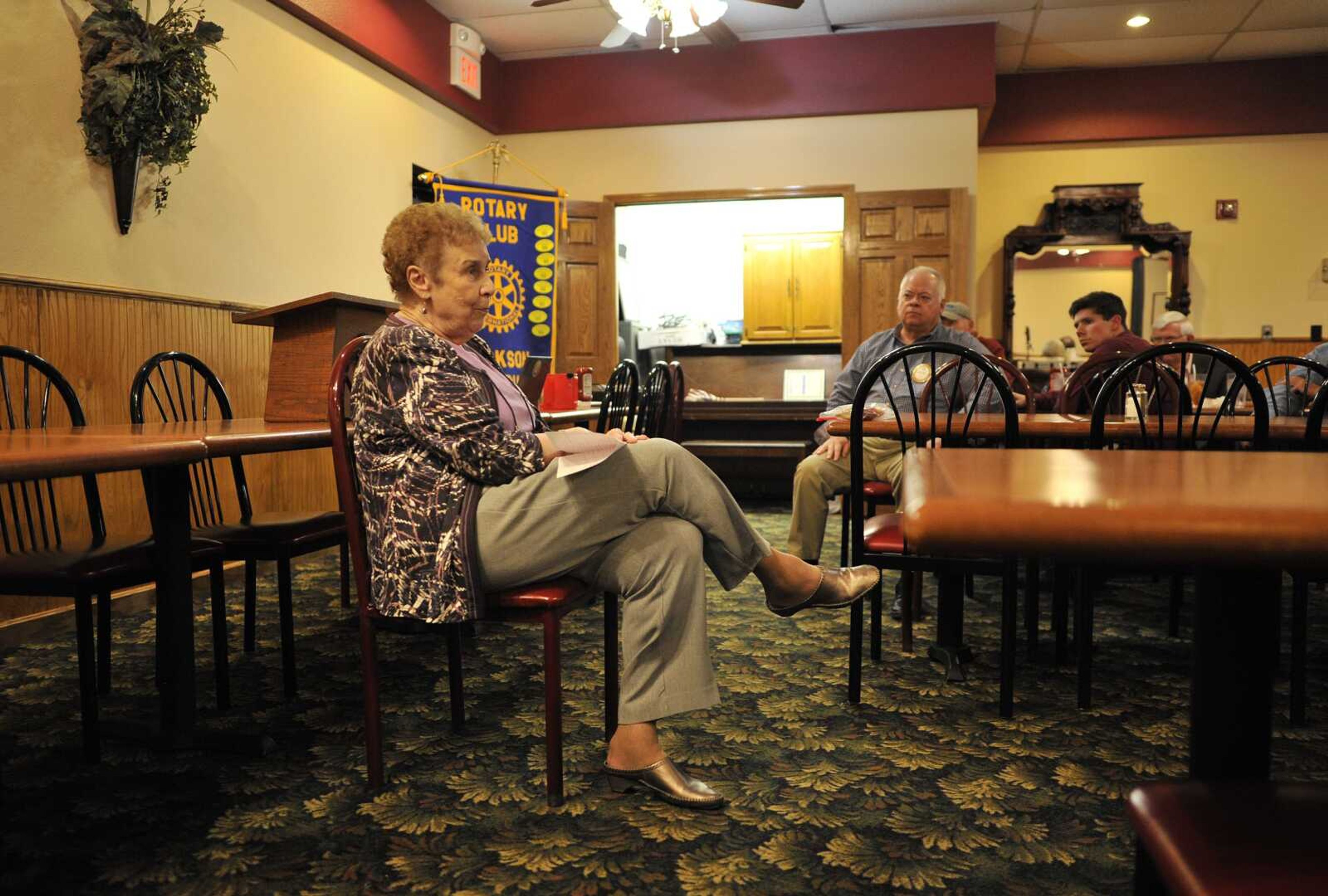Cape woman recalls her survival in war-torn Germany
When she fled from her hometown Magdeburg, Germany, in 1949, all Brigitta Tinsley had were a few pieces of clothing and a plush toy bunny she carried in her pocket. Seventy-two years later, Tinsley sat in Delmonico's Steakhouse in front of the Jackson Rotary Club and told her story. She fiddles with the stuffed bunny in her fingers, the same one she harboured through gunfire and refugee camps as a child...
When she fled from her hometown Magdeburg, Germany, in 1949, all Brigitta Tinsley had were a few pieces of clothing and a plush toy bunny she carried in her pocket.
Seventy-two years later, Tinsley sat in Delmonico's Steakhouse in front of the Jackson Rotary Club and told her story. She fiddles with the stuffed bunny in her fingers, the same one she harboured through gunfire and refugee camps as a child.
Tinsley, her mother and grandparents fled from their home in East Germany to West Germany in 1949. In a fight for freedom, they fled to escape the horrors of war. Russians had occupied their town and killed Tinsley's father when he served on the Eastern front in 1944.
The family had no food to eat. Tinsley was 10 at the time.
Life in East Germany at the time was heavily restrictive. Tinsley was only allowed to read government approved literature at school. People would cross the border illegally just to find food. Citizens had to account for everything they did and where they went.
"You felt you could not make a mistake without getting in trouble," Tinsley said.
Tinsley and her family packed what necessities they could and left Madgeburg. They crossed the border through a wheat field under gunfire.
Tinsley and her family had no where to live, so they took shelter at several refugee camps. Most camps only allowed refugees to stay for three nights.
"If you did not have the opportunity to go into a refugee camp because they were overrun, then you slept outside or any place you could find," Tinsley said.
The family lived like this for three months. One day, Boy and Girl Scouts served them food, and a Boy Scout leader offered Tinsley's grandfather a room to stay in for a year.
The room was in a partially bombed-out building in Mainz, Germany. Part of the building was gone. It swayed back and forth when the wind blew.
Yet, the new shelter marked a positive turn for Tinsley and her family. She returned to school and eventually graduated from a women's academy.
Tinsley married a man from Cape Girardeau who was stationed in Frankfurt, Germany. In 1957, she moved to Cape Girardeau. The marriage didn't last, but Tinsley stayed in Cape Girardeau for the bulk of the last 64 years.
Tinsley later married Charles "Bill" Tinsley, a former Conagra Brands plant manager.
Tinsley found work as a accountant and worked in Southeast Hospital's accounting office for 24 years until she retired 1995.
At the Jackson Rotary Club meeting, attendees listened intently to Tinsley's story. Most stopped eating their meals to listen to her words.
"This was definitely eye-opening," said Dana Townsend, Jackson Rotary Club's president. "It was wonderful to listen to Brigitta speak."
Connect with the Southeast Missourian Newsroom:
For corrections to this story or other insights for the editor, click here. To submit a letter to the editor, click here. To learn about the Southeast Missourian’s AI Policy, click here.








